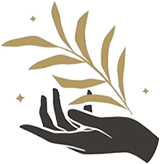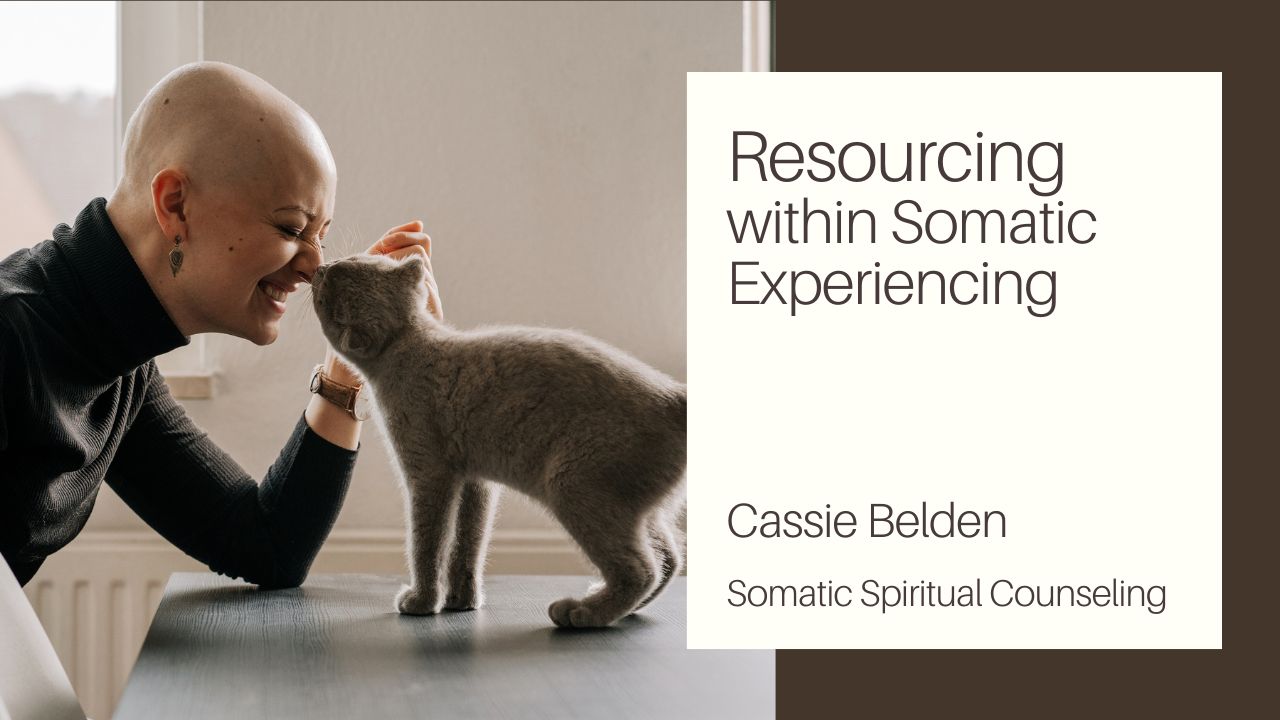It’s not often that we make decisions based on the reason that something just feels right. What would it be like to make decisions that just felt right, and then watch all of the logistics fall into place afterwards? Watch the video below with Dara del Rio to learn about some of the potential roadblocks we might encounter when we choose the path of heart-based decision making.
VIDEO TRANSCRIPT
Our Locus of Attention
Hi, this is Dara with Somatic Spiritual Counseling. And today’s video is on roadblocks to following your heart. So, first, I’d like to do just a little somatic exercise. Usually, or especially in our culture, our attention and our sense of self is kind of like here. It’s in our head. And it can be really potent just to see what it would be like to just drop it down a little bit, closer to the rest of our body, specifically into our heart. And so, as we’re sitting here, if it feels comfortable to you to close your eyes, you can do so, or have your eyes just gently cast downward. Whatever feels best. I’d like you to notice first your feet on the ground and your pelvis touching the chair or the floor, wherever you’re seated. And allow your attention to just settle, just shift from the busyness of scrolling or thinking or processing, into just noticing and feeling and being.
So, let’s take a moment here to just feel into the area where you feel like your attention resides. For most of us, this is in our head. It’s in the center of where all of our senses are. In a lot of ways, our sense of self is derived from our connection to our senses, and so there’s this sense that this is where we really live, in here. And I want you to just see if you can feel what that you is, who is feeling or seeing or hearing. What does that kind of sense of self literally feel like inside of either your head or if you feel it elsewhere in your body? The locus of your attention. And if you can, what would it be like to move that locus of attention to a different space? Is it possible to do that? Is there a sense of being stuck from being able to do that? What if we saw the world from about right here instead of about right here? How would that change everything?

So, when we have a sense of what we want to do with our life, we usually have reasons for wanting to do it. Maybe it’s because it’s the best financial move, or we have found the perfect job and a location, and this is the job that’s going to further our career to wherever we want to be or whatever we want to do. Maybe it’s because of our partner, and we’re following this person because we feel like they’re our person. However it is that we live our life, there’s usually reasons for the things that we do. And it’s not often that we make decisions based on the reason that something just feels right, like there isn’t any sense of “Okay, logistically, this is what makes sense pragmatically, strategically. Something just feels right.” What would it be like to make decisions that just felt right, and then all of the logistics and all of the pragmatic reasons behind why that was the best choice fell into place after? We just had a clear sense of “This is my path forward.”
The Need to Explain + Make Meaning
So, one of the big impediments that I’ve noticed to following our hearts and making decisions based in our heart is this real tendency that many of us have to need to have reasons for things, need to have reasons for not only the future, but for the past as well. And I think a lot of this, I can’t say all of it, but in my own experience, I’ve witnessed that a lot of this tendency has to do with needing to explain why a situation is the way it is. And so, when we’re children, maybe we weren’t in situations that weren’t our choice, that didn’t feel good, that we couldn’t fully comprehend, and we needed to explain to ourselves why things were the way they were, so that we could continue on, rationalize in a way as a survival mechanism, as a coping skill.
And I think that’s a really valuable tool to be able to make meaning, even if it’s not ultimately true, of a situation, so that we can navigate it if we have no other choice. Yet when we live this way our whole life, we lose a lot of a sense of agency. We’re not always children. When we grow up, we have more choices available to us. We have many different pathways open. At least some of us do more than others. Yet for the most part, I think there is a much larger degree of agency in almost everybody’s lives as they grow older and they have the ability to be an adult, care for themselves in various ways.
I can give an example from my own personal life. Recently, I decided that I was going to move to a new place, and there were a couple of different places that I was choosing between. And one of them felt quite scary and unknown and kind of out of the blue. And another one felt like it might make more sense as an option. There are people that I know that live there. It’s in a better time zone for my work. Different things like that. It’s in a culture that’s more familiar to me, with a language that’s more familiar to me. So, when I was choosing between these two options, I kept noticing this ambivalence, this desire to go back and forth between each option, weighing the pros and cons, of which there were countless, and really trying to figure out, “Okay, which one is going to bring me closer to how I want to feel, whatever my ideal is that I’m going for?” And it was kind of driving me crazy, and I realized that I do this with a lot of things in my life, where I have different options, maybe two or more different options, and I can’t really decide which direction to go. And I try to weigh my options. I try to just commit to one and force myself into something, but there’s always this nagging sense of uncertainty of like “Well, what about the other one? Which one is it really?”
Thought Patterns: Discerning the Old from the New
So I decided to just sit with this kind of meta-cognition of I’m noticing this pattern to always have different options and not know which direction I want to go in, or feel pulled in multiple directions at once that contradict each other, and I need to choose between one or the other that are mutually exclusive. And so I realized that when I was a child, my parents kind of lived in this fictitious world that I needed to live in with them in order to cope, in order to survive. And so I had this one narrative of reality where I was believing what my parents told me about how they were, about how the world worked, about who I was in it. And then I had this other tiny little seed of truth of knowing, “Oh, no, this is wrong. This is unhealthy. There’s something here that I don’t want to perpetuate, that I don’t want to bring into my future.” And so I had these two different truths that I had to navigate. I had to navigate between these two places. And my ability to move ambivalently through these different forms of reality really served me when I was young because it allowed me to navigate the situation that I had to stay in, yet it also allowed me to, later on, remember those seeds of truths and come out of it.
So, once I realized this, I realized that that’s what I often do. When I’m caught between two decisions or I feel really stuck and unsure, part of me is feeling into what is really true in my heart, and part of me is feeling into what I would like to be true to make things easier for myself. And once I realized that, things became a lot clearer with the choice I had to make in terms of the new place to move, and I was able to feel which one just felt right, and trust that all of the logistics would figure themselves out afterwards and didn’t need to be a part of my primary decision-making process.
Bottom-Up Decisions
So, maybe you can relate to this in a way of your own, if there’s a decision that you’ve made that just felt right even though it wasn’t the logical thing to do, that later proved to be really beneficial or fruitful in some way that you couldn’t have anticipated or predicted. And moreover, just this way of approaching decisions where it’s from the bottom-up, from our body into our mind. So, first, we’re feeling what feels right, and then later, the mind makes sense of the decision that came from our depths, from our heart.
So, that is my story of one kind of block that I think a lot of us have around making heart-based decisions, if you want to call them, or body-based decisions, in really big dramatic ways, like where to move. I mean, do we trust our bodies enough to decide on that level what we need to do, and where we need to be, and who we need to be with and around? So, I hope this video was helpful in some way or resonated with you. I’d love to hear any feedback you have to share, any stories of your own. And I look forward to hearing from you. You can reach out to us on our website, on our contact page, and I’ll connect soon.
Learn more about somatic therapy here.
—————————————————————————————————————————




